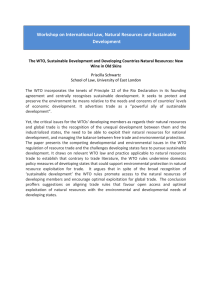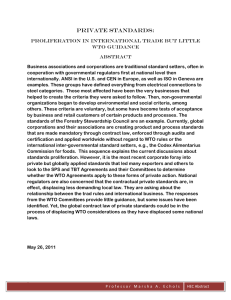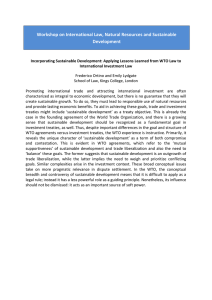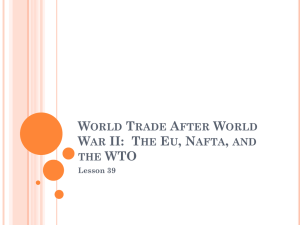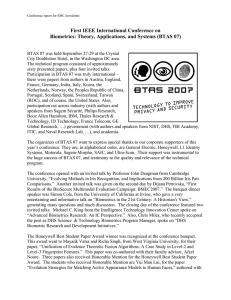Carbon Pricing, The WTO and Canadian Federalism
advertisement
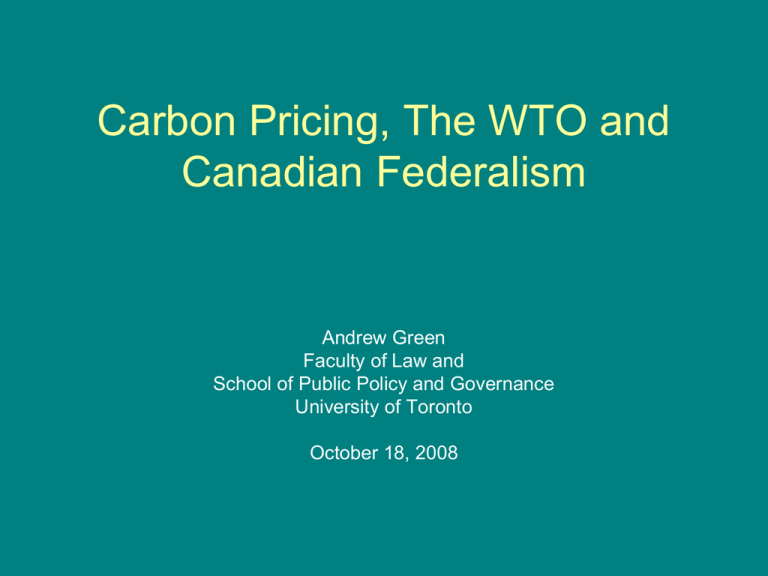
Carbon Pricing, The WTO and Canadian Federalism Andrew Green Faculty of Law and School of Public Policy and Governance University of Toronto October 18, 2008 Carbon Pricing, The WTO and Canadian Federalism • What instruments? • Who is obligated? • Who decides? WTO and Climate Policies • Significant threat of protectionism • Reducing GHG as additive public good • Risk of free-riding • Trade measures can be used as: • carrot • stick • reducing disincentives to action What Makes Climate Change So Difficult for the WTO? • Hard for WTO to sort out protectionist measures • Different costs and benefits across states • Different preferences across states • Uncertainties – especially about what will work Border Tax Adjustments (BTAs) BTAs on Imports: • Tax or charge on imports • WTO: Equivalent to tax or charge in domestic market BTAs on Exports • Rebate of or exemption from costs • Illegal subsidy? • WTO: Same level as for domestic market What Instruments? • Taxes v Trading • BTAs for Taxes – indirect • BTAs for Trading – “internal tax or other charge”? What Instruments? • Product v Process • BTAs on Imports – Article XX List of exceptions: » Article XX(b): “necessary to protect human, animal or plant life or health” » Article XX(g): “relating to the conservation of exhaustible natural resources” » Chapeau: no unjustifiable or arbitrary discrimination or disguised restriction on trade • BTAs on Exports – “prior stage indirect cumulative taxes” on inputs consumed Who is obligated? • Federal, not provincial governments – Federal state clause: feds to take “reasonable measures” to ensure compliance – if not, sanctions • Not all governments in practice – If breach, complaining party gets to impose countermeasures (raise tariffs) – Prospective – US? Who Decides? • • • • Open questions about WTO rules Balancing efficiency and values WTO – panels, Appellate body Deference to domestic governments? • Recent moves towards greater deference

